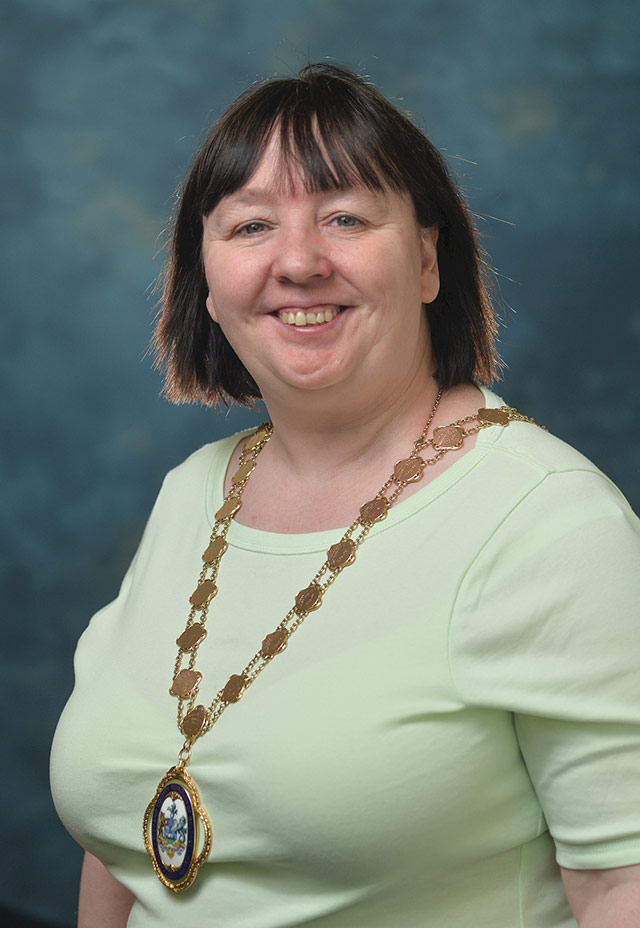Female leaders inspiring change
 In an era when global positions of power including the British Prime Minister, German Chancellor, Scottish and Northern Irish First Ministers and potentially the US President are occupied by women, Belfast Deputy Lord Mayor, Mary Ellen Campbell argues that more still needs to be done to address gender inequality.
In an era when global positions of power including the British Prime Minister, German Chancellor, Scottish and Northern Irish First Ministers and potentially the US President are occupied by women, Belfast Deputy Lord Mayor, Mary Ellen Campbell argues that more still needs to be done to address gender inequality.
Sinn Féin is committed to equality, including gender equality in politics. We have continually highlighted this issue and sought to promote the role of women in politics and public life. Huge strides have been taken in recent years to increase the number of women in politics, but still more work needs to be done. Sinn Féin has been a leader in this area.
We currently have six female TDs, 10 female MLAs, two female Senators and three of our four MEPs are women. We currently have two female Executive ministers, Michelle O’Neill, Health Minister, and Megan Fearon, who is a Junior Minister. Martina Anderson MEP and Jennifer McCann MLA have previously served as Junior Minister. Our chief whip is a woman, Carál Ní Chuilín and Caitríona Ruane is Principal Deputy Speaker of the Assembly both of whom served as Executive Ministers. Our party Vice President is Mary Lou McDonald and 50 per cent of our ruling Executive, the Ard Chomhairle, are female.
This shows our genuine commitment to gender equality in politics. We require real proactive steps in order to support women to enter and advance in political and public life. In the last mandate, the Assembly created the first ever women’s caucus, which is chaired by Cáitríona Ruane. The women’s caucus is a huge step forward for equality that puts the voice of women at the heart of decision making in the Assembly.
Women play a vital role in every aspect of our society and it is only fitting that the voice of women should be heard at the highest levels of government. The caucus will aim to further the role of women in politics and society and boost representation where it can. The creation of the caucus is an indication of how far we have come in our struggle for equality but it also serves as a reminder of how far we still have to travel to ensure full equality for women in society.
It’s also worth remembering that Sinn Féin has a long history of promoting women in politics. The proclamation was addressed to ‘Irishmen and Irishwomen’ and guaranteed universal suffrage, truly revolutionary at the time.
Countess Markievicz was the first woman elected to the House of Commons and became the first female Minister when she held the position of Minister for Labour, only the second female government minister in Europe. Under successive Fianna Fáil, Fine Gael and Labour administrations in the south Markievicz remained the only female cabinet minister until 1979. Sinn Féin was also led by a woman, Margaret Buckley from 1937.
Sinn Féin is committed to promoting the role of women in politics and public life and to encourage more women to take part in the democratic process at all levels. One way of ensuring better representation of women is gender quotas. In the absence of equality in numbers these should be introduced into all political arenas. My party has submitted a bill for consideration on increasing the number of women in politics through gender equality quotas at local government elections to the Assembly. Gender equality legislation in the north must be brought into parity with the south, where 30 per cent of candidates from each party were required to be female in the last general election. This number is set to rise to 40 per cent in subsequent elections.
However, gender quotas are not the entire solution. They must be part of a broader initiative to change the attitudes of all political parties and governmental departments. More needs to be done, Sinn Féin supports more robust gender quotas and is committed to achieving equality of representation.
We also need to look at family friendly hours to make political life more representative of society and not simply on the basis of gender. Attitudes also need to be changed. Unfortunately outdated sexist attitudes still exist and can prevent women from being involved in political and public life.
These must continue to be challenged to create an atmosphere where women are encouraged to play a full and active part in public life and politics.





